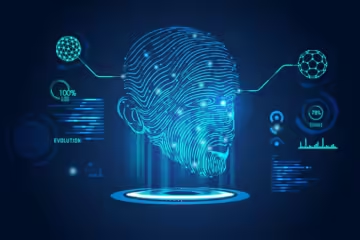In 2024, the landscape of connectivity is undergoing a profound transformation with the widespread adoption of 5G technology. As the fifth-generation wireless network continues to roll out globally, its impact on communication, industries, and society as a whole is becoming increasingly apparent.
At its core, 5G technology promises lightning-fast internet speeds, ultra-low latency, and massive connectivity, paving the way for a plethora of innovative applications and services. With download speeds potentially reaching up to 10 gigabits per second, streaming high-definition content, immersive gaming experiences, and real-time communication are now smoother and more seamless than ever before.

One of the most significant implications of 5G lies in its ability to catalyze the development of the Internet of Things (IoT) ecosystem. With its support for a massive number of connected devices per square kilometer, 5G networks enable the seamless integration of smart sensors, autonomous vehicles, and industrial IoT solutions. This interconnected web of devices holds the potential to revolutionize industries ranging from healthcare and transportation to manufacturing and agriculture, ushering in an era of unprecedented efficiency and productivity.
The needs of a small-time tour operator are a lot different from the needs of a large international travel agency itself.
Steve Doe – Partner

Moreover, 5G technology is poised to drive innovation across various sectors, including healthcare, education, and entertainment. Telemedicine services powered by 5G networks can deliver remote consultations, real-time diagnostics, and even remote surgeries with unparalleled precision and reliability. In education, virtual and augmented reality experiences enabled by 5G can revolutionize remote learning, providing students with immersive, interactive educational content regardless of their physical location.
However, alongside its transformative potential, the widespread deployment of 5G technology also raises concerns regarding cybersecurity, data privacy, and digital equity. As more devices and systems become interconnected, ensuring robust security measures and safeguarding user privacy becomes paramount. Additionally, bridging the digital divide to ensure equitable access to 5G networks and services remains a pressing challenge that requires concerted efforts from policymakers, industry stakeholders, and communities.
In conclusion, 5G technology represents a monumental leap forward in the realm of connectivity, offering unparalleled speed, reliability, and scalability. Its transformative impact on industries, services, and everyday life is poised to shape the future in profound and unprecedented ways. However, realizing the full potential of 5G requires addressing various challenges and ensuring that its benefits are accessible to all. As we navigate this hyperconnected future, embracing the possibilities of 5G while addressing its complexities will be crucial in shaping a more inclusive and sustainable digital society.





